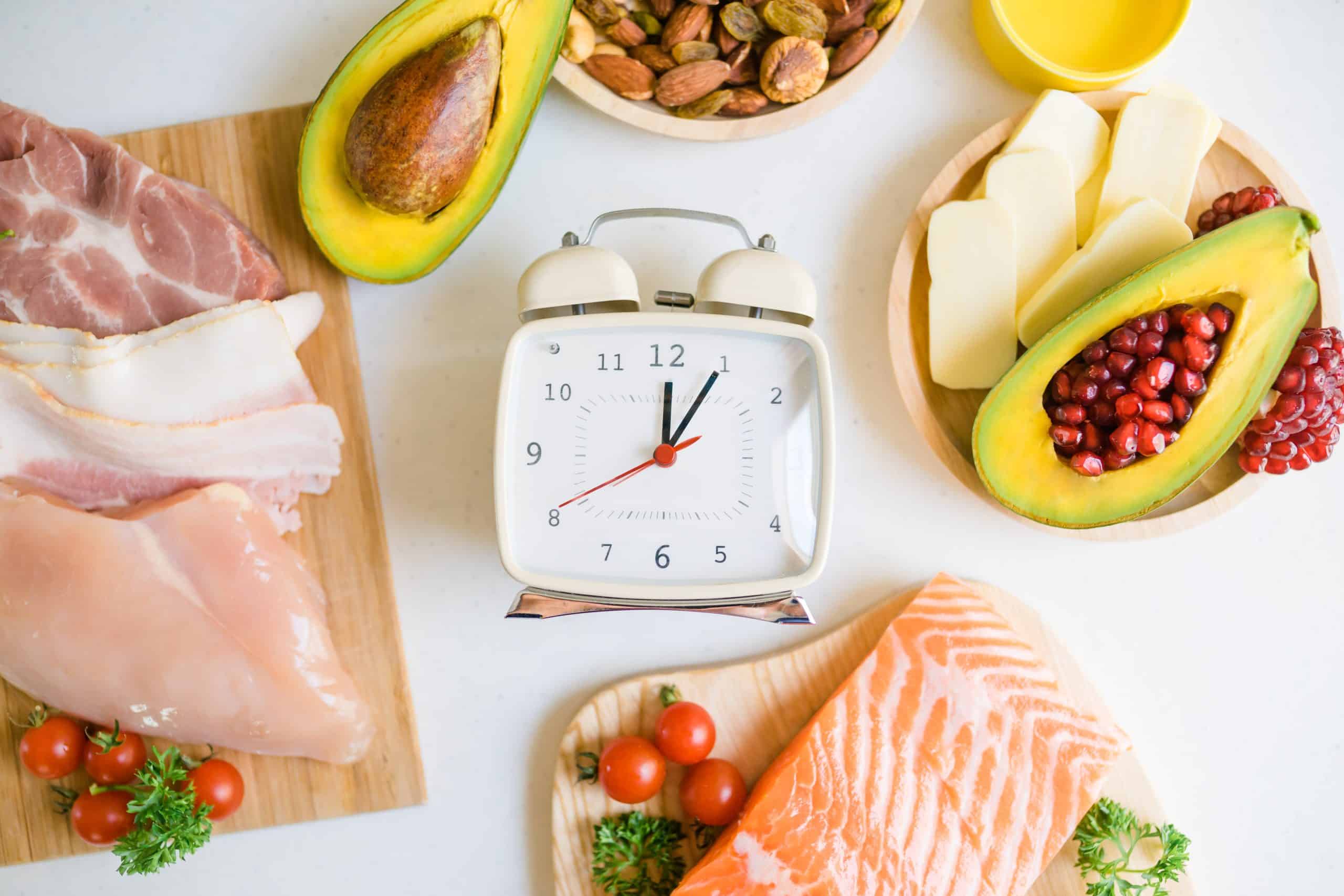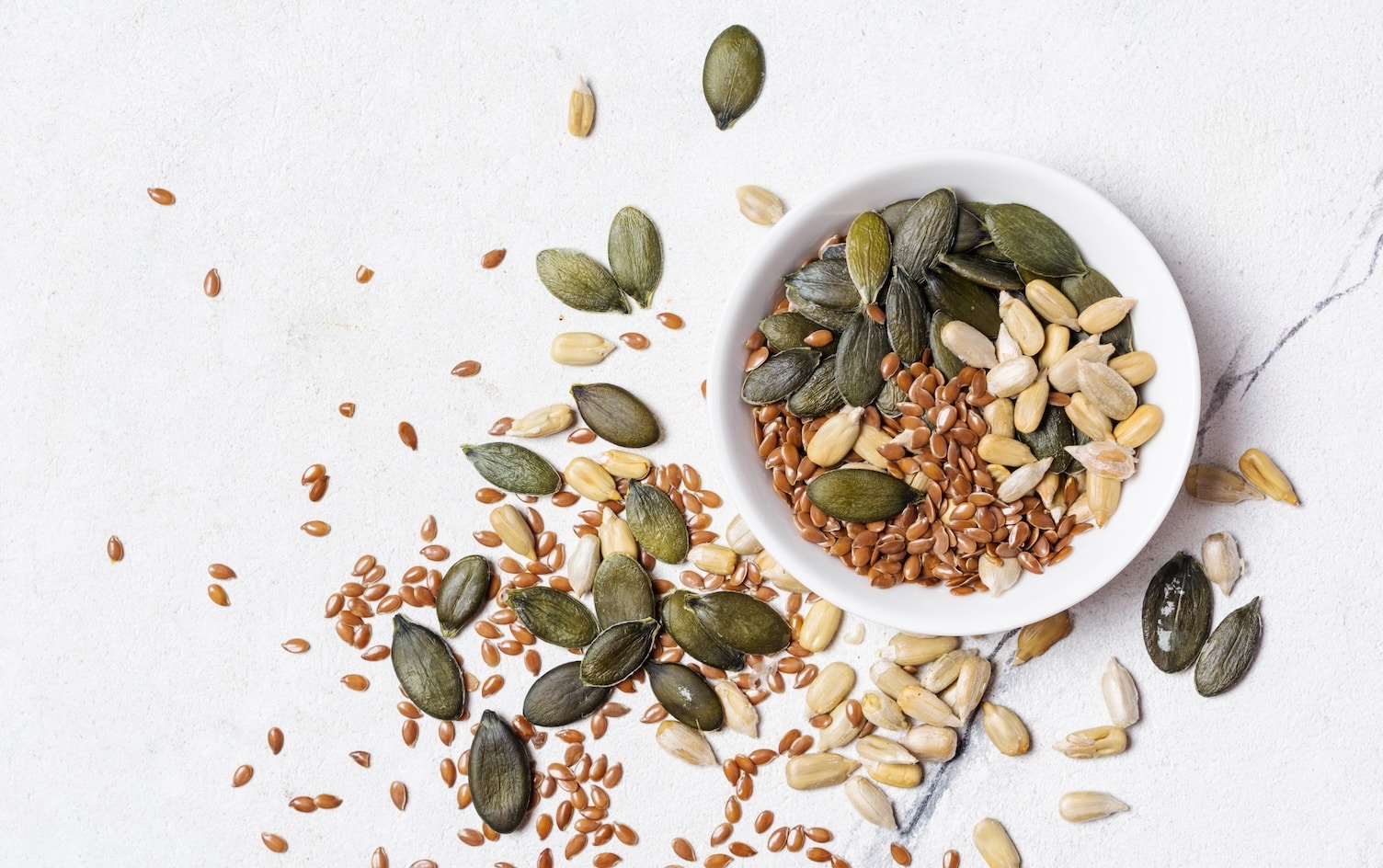
If you follow any health or wellness gurus on social media, there’s a good chance you’ve heard of intermittent fasting.
Commonly referred to as “IF” in the fit-fluencer world, it’s a diet in which you restrict your calories—aka, fast—during a window of time ranging anywhere from 12 to 40 hours. It’s become such a hot topic that it replaced the keto diet as the most popular diet in the United States in 2022.
There are a lot of different methods of intermittent fasting, whether you skip breakfast to do 16:8 or just eat one massive dinner for OMAD (one meal a day).
Or, if you’ve watched any of the thousands of #fastingtiktok videos, you might follow the current intermittent fasting craze: the 5:2 diet.
What is the 5:2 diet?
The 5:2 diet approach consists of eating your regular calorie intake for five days and then a restrictive calorie intake for two days (which are considered your “fasting” days).
While the exact calorie requirements vary person to person, a general rule of thumb is to cut your calories to 25 percent of your normal intake on your two lower days. So if you usually eat 2,000 calories per day, you would consume just 500 calories on your fasted days.
It sounds a little extreme, but plenty of people on social media swear by the fasted diet. We spoke to Daisy Mercer, RD, to find out whether or not the 5:2 diet actually works for weight loss and, more importantly, whether or not it’s actually safe.
Who is the 5:2 diet for?
First things first: Just because this way of eating worked for insert-influencer-here, doesn’t mean it will work for you. Nor does it mean it will be healthy for you. Consult with your physician before starting any new diet regime, including the 5:2 intermittent fasting diet.
Remember, intermittent fasting is just one of many tools. If it’s the right one for you, great! If not, it’s OK to try something else.
But as for whether or not Mercer would recommend it? It depends.
“If my patient is not diabetic, not doing strenuous activity on fasting days, and knows they can tolerate a fast, then sure it could work!” she says. “Generally, there should not be any problems with eating low calorie a few days a week if you are otherwise healthy and meeting your needs the majority of the time.”
She adds that intermittent fasting of any nature may be an effective tool for fat loss. That’s because when your body doesn’t get food for a while, it runs out of sugar stores and starts burning fat for energy.
But the 5:2 way of eating isn’t safe for everyone.
“If you are diabetic, it is important to maintain a consistent intake of carbohydrates, and fasting can cause a dangerous dip in blood sugars.” Daisy explains.
And if you’re someone who’s highly active, trying to make it through the day with little calories could be a poor decision. That Peloton ride and 6 a.m. barre class likely require a lot more fuel (read: calories) for you to perform well and for your body to recover.
Mercer tried intermittent fasting herself and wasn’t a huge fan. “I felt groggy and irritable during my fasting period,” she admits.
How to do the 5:2 diet
Let’s say you’re hyped to try out the 5:2 diet and you cleared it with your physician. Now what? The key is volume.
Mercer suggests prioritizing the following on fasting days:
- Fruits and vegetables: These are low calorie but provide a lot of bulk (and fiber!) which will allow you to feel more satisfied while not consuming a lot of calories.
- Protein! This is important for muscle health and carbohydrates for energy. Plus, lack of carbs can cause brain fog and fatigue.
Also Read >> Essential Guide to Protein
And on your non-fasting days? Keep an eye on your caloric intake by tracking with MyFitnessPal.
“Resist the urge to eat more on your higher calorie days to compensate for your fasting days,” Mercer says. “If, for example, your TEE (total energy expenditure) is 1,900 calories per day, you don’t need to consume 2,300 calories to make up for the other days. Instead, just focus on meeting your daily energy needs.”
One final word of caution from Daisy: “While you may see quick weight loss, these diets tend to not be sustainable.” Instead, she recommends making behavioral changes that allow you to improve your eating habits. That way, you can maintain weight loss for the long term.
Did you know MyFitnessPal has an Intermittent Fasting tracker? Learn all about it.




